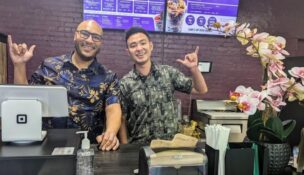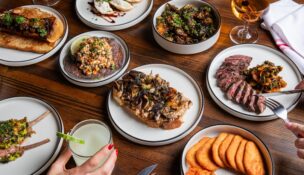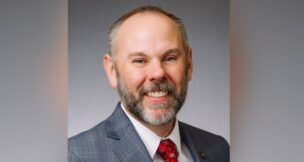Cooking up careers: USC program pairing workers with opportunity
Melinda Waldrop //November 6, 2019//
Cooking up careers: USC program pairing workers with opportunity
Melinda Waldrop //November 6, 2019//
Brenton Bullard has been in kitchens his whole life.
Growing up, the Columbia native helped his grandmother make Sunday dinner. Now working at the vaunted Vista restaurant Motor Supply Co., Bullard wanted an official stamp to mark his career choice.
“It was time for me to get some sort of certificate,” said Bullard, who attended the University of South Carolina “for a spell” before discovering its 11-month Culinary Institute Certification Program.
The program, begun nearly two decades ago and revived this year after a brief hiatus, helps prepare aspiring chefs for the 230,000-plus restaurant and food service jobs that make up 11% of S.C. employment — a number expected to grow to 13% by 2029, according to restaurant.org.
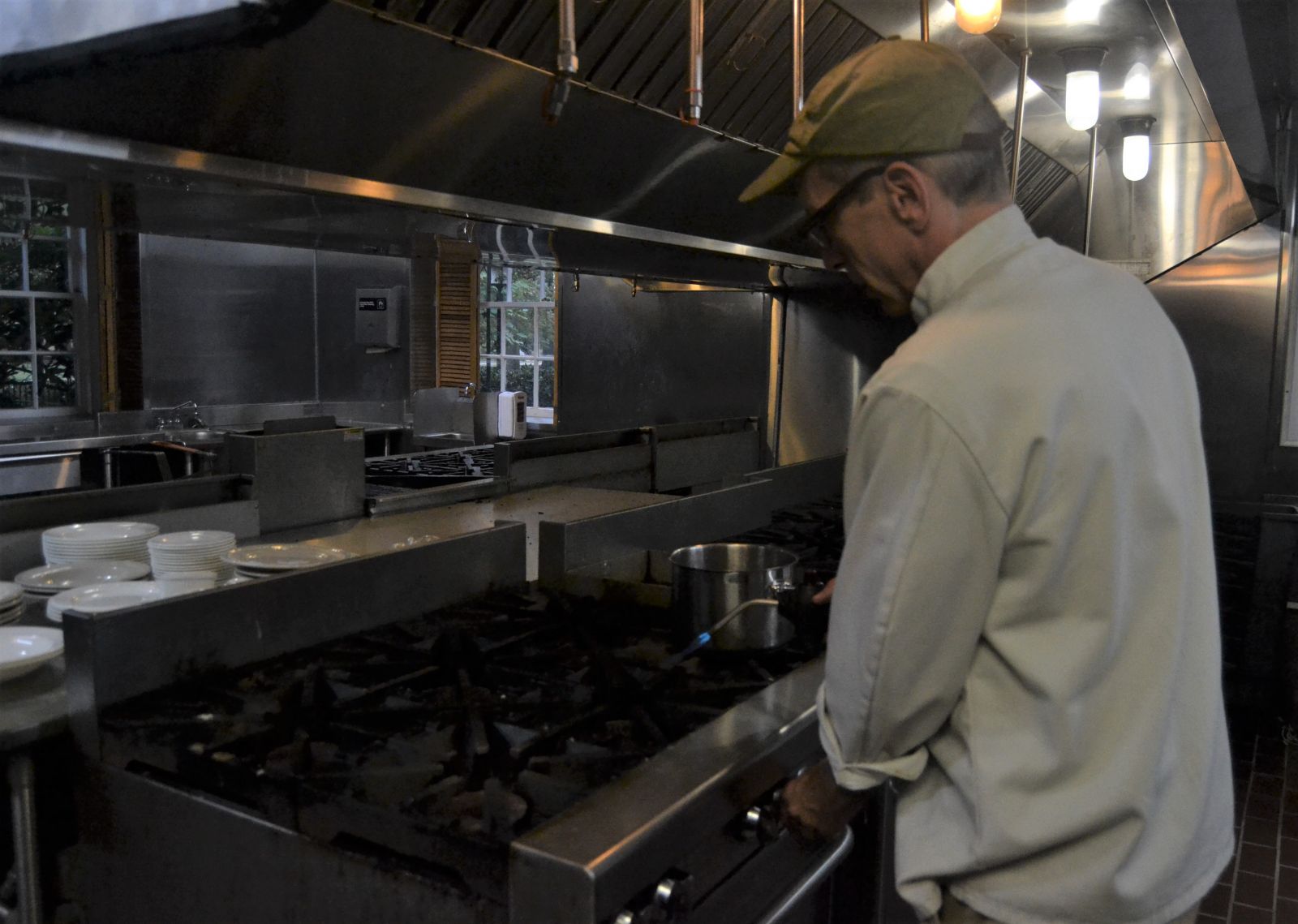 The program added a new wrinkle in 2019: It now accepts GI Bill benefits, thanks to a partnership between the university’s Office of Veterans and Military Services and its School of Hotel, Restaurant and Tourism Management.
The program added a new wrinkle in 2019: It now accepts GI Bill benefits, thanks to a partnership between the university’s Office of Veterans and Military Services and its School of Hotel, Restaurant and Tourism Management.
“We’ve got a big military facility in our neighborhood, (and) we also know there’s a shortage of restaurant workers locally,” said USC professor and school director Drew Martin. “It was a combination of people getting out of the military needing jobs and a shortage of qualified people to work in the kitchen. It seemed like an ideal match.”
George Hendry, director of the culinary program, which is run out of the university’s McCutcheon House, said the proximity of the Fort Jackson Army base to USC made the extension of GI Bill benefits to program participants a logical fit. He thought retiring or active-duty military personnel would be a good addition to the program because of the character attributes Hendry saw firsthand when he worked with members of the Wounded Warrior project last spring for a class he teaches.
“Talk about a work ethic,” Hendry said. “The discipline — you could just see it. I would really like to see that in the certified program, because if you have three or four older students — meaning in their 20s and 30s instead of 18 to early 20s — they’re going to give those younger people the work ethic. I firmly believe that. They’re going to see them working and they’re going to want to work that hard. Also, they (military personnel) are very giving. They have no problem sharing what they know, or don’t know.”
The seven-member 2019 Culinary Institute class includes three members of the military, Hendry said. That number is impressive, he said, considering that after waiting for all the program paperwork to be approved, the university didn’t have much time to promote the new benefit.
“We had about a month,” Hendry said. “We had phone calls saying, ‘Are you accepting the GI Bill?’ I couldn’t say yes until it was official.”
Hendry hopes for a full class of 20 students next year, 16 of whom can be military personnel. A numbers increase may also be driven by the relocation of the program from the basement of the McCutcheon House on the Horseshoe to USC’s new, $2 million J. Willard and Alice S. Marriott instructional lab, set to open next year in the Close-Hipp building.
Hendry and Martin also envision basic food sanitation or preparation classes eventually being taught at Fort Jackson.
“I see this as growing to be much bigger than what we’ve got right now,” Martin said. “We could be training 50 to 70 recently retired military personnel, and we’ve got restaurants ready to hire our graduates.
“To me, that’s exciting, an opportunity to help another group of people. Maybe they’re not going to be four-year graduates, but they’ve got the skill set. They’ve got discipline. They’re just looking for an opportunity.”
The USC culinary certification consists of 11 evening courses held from 6 p.m. to 10 p.m. Monday and Wednesday or Tuesday and Thursday. Bullard, who worked his way up through the industry after starting as a food delivery driver, said the program allows him to tailor his classes around his work schedule at Motor Supply.
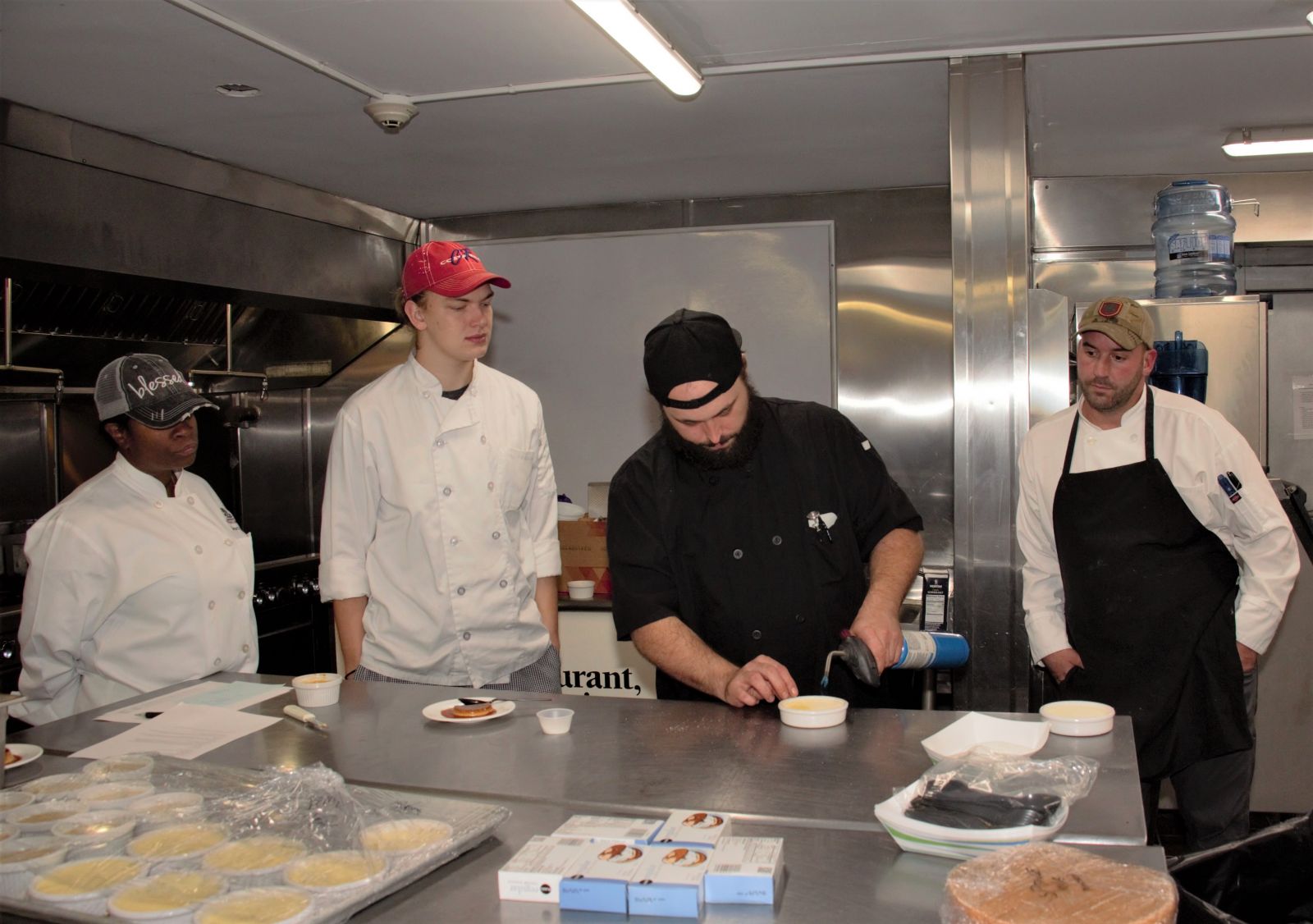 For military personnel, the perks can be even sweeter. The GI Bill program will pay $750 per course, and the culinary certificate program costs $500.
For military personnel, the perks can be even sweeter. The GI Bill program will pay $750 per course, and the culinary certificate program costs $500.
“If they’ve been in it (the military) long enough to receive the full benefit, everything is paid for — their books, everything,” Hendry said. “I think that’s what makes it attractive to them, if (they think) ‘I really don’t want to go back to school and get a bachelor’s degree.’ You can do two nights for 11 months and really get something out of it.”
Martin said the certification program’s acceptance of GI Bill benefits also gives the university a chance to fulfill its mission of public education outreach.
“We want to be able to serve the citizens of this state in a lot of different roles,” Martin said. “The traditional four-year degree is a good path for a lot of people, but not necessarily all of them.
“I see this as a renaissance for us (in the culinary program). I’m really excited about it in terms of preparing people for immediate employment and reaching a group of people that want to work and just need a short period of training.”
This article first appeared in the Nov. 4 print edition of the Columbia Regional Business Report.










